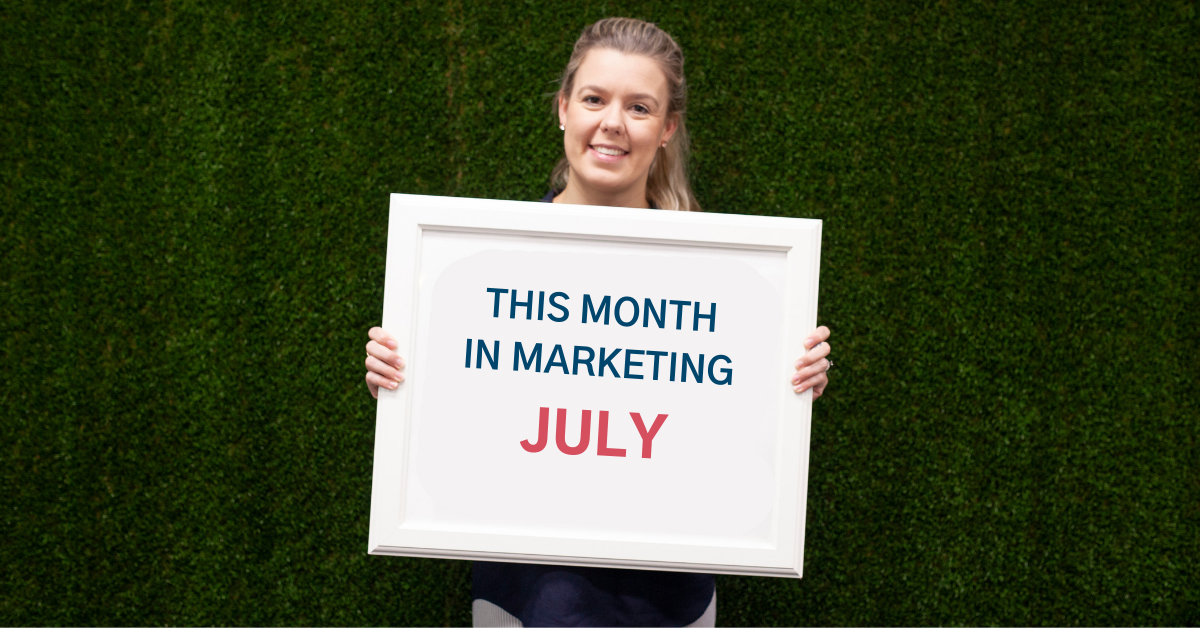This Month in Marketing: July 2019
Blog by Threesides July 29, 2019
Since it’s Dry July, let’s kick this month of by taking a look at Australia’s king of dry humor, Tom Gleeson and his controversial Logie win. Unless you’ve been living under a rock you would’ve heard that the comedian’s recent TV Week Gold Logie win caused some outrage amongst the television community earlier this month, for fear that he had boycotted the voting system, using “aggressive” campaign tactics and essentially diminished the prestige of the award by poking fun at it. From our perspective, we couldn’t help but ask if this was really the case, or was this instead, a stroke of successful marketing genius? If you weren’t already aware, Gleeson is the creator and host of Australia’s highest rating quiz show, Hard Quiz, which plays off humorously heckling its contestants. Although we agree that his acceptance speech may have warranted a few raised eyebrows, (let’s just say we don’t think Dry July is on Tommo’s agenda)… Consider this, “hard talk tactics” are essentially Gleeson’s comedic brand, so should we really be surprised that his campaign came across this way? Or that a person who makes jokes for a living, made a few jokes about the award itself?
At the end of the day, viewers loved it – he won. Perhaps it’s time to stop being outraged at Australia’s most popular TV comedian winning a popularity contest, and turn our heads towards taking future inspiration from how he successfully noticed a market gap for voters and addressed it with a timely, personalised, on-brand campaign.

- As we saw in last month’s news with their ban on all gender-stereotyped advertising, the UK is again royally moving towards safeguarding consumers in the marketing realm; now investigating how Google and Facebook influence the digital advertising market. In true Brit style, the enquiry aims to ‘spill the tea’ on relevant market power of the two digital giants, whether this may be harming competition, as well as investigating potential lack of consumer control surrounding how personal data is used and monetised. This news is quite timely a little closer to home, with Australia’s consumer watchdog (ACCC) recently presenting its final report on our own investigation into Google and Facebook and their impact on media and advertising. Although the government is yet to ‘spill the billy’ on the report’s findings, we expect it may influence some real change on how relevant content is supplied and distributed in Australia, with reciprocal implications for media content creators, advertisers and consumers alike. We’ll certainly be keeping our eyes on this one over the upcoming months.
- Removal of stereotyped advertising certainly seems to be the flavour of 2019, with Unilever DNA testing marketers to challenge preconceptions and stereotypes surrounding ethnicity.By asking 63 of its top marketers to take a geographical DNA test, the FMCG giant hopes to actively disrupt the way all marketers and agency partners think about diversity. “The goal was to ‘un-stereotype’ marketers’ minds to make them more creative, do their job better and unleash the potential of our brand,” said Aline Santos, Unilever’s executive vice-president of global marketing. After the DNA test and subsidiary psychology classes, an immediate 35% reduction in “stereotypical inferences from consumer data” (the tendency to stereotype consumers) among those who took part was found …It seems like spitting in a test-tube may be a direct streamline to better marketing!

- Instagram has added weight to its marketing capabilities, by introducing ads to its Explore Feed. Instagram will now allow ads to appear once a user taps on an image or video in its Explore Feed, as well as including additional targeted ads once a user begins to scroll. As you may guess, we’re always keen to try out new social media marketing features, so welcome the new addition… Although we know that with greater platform marketing power, comes great tool-testing responsibility. Will the ads be more natural and engaging for consumers using the platform, or is there a risk that Instagram will now become overpopulated with advertisements deterring users?? Hopefully Insta’ can get the right advertising “algor-rhythm” in place over the coming months.
- 61% of Gen Zs and Millennials believe brands have the power to create communities based on common interests and passions. What makes young people tick? A question regularly asked and misunderstood by grandparents and some marketers alike. Lucky for us, Spotify has just released their Global Trends Report so we can understand what motivates these generational consumers and how brands can essentially “change their tune” and marketing, to ensure we’re all getting ‘down with the kids’ in the right way. The key findings showed that these generations are politically involved and socially influenced, with 65% noting that they expected brands to be part of the debate and to promote more progressive values. What does this mean for brands? The report recommends that marketers take a fresh look towards ensuring they are more transparent in messages, dial up message emotion, focus on positive moments to uplift the audience, as well as a range of other recommendations for Spotify specific advertising across audio, video and display mediums. A key recommendation was the use of influencer/s who could positively sway, or even act as a spokesperson in communicating a brands positive or progressive values. Taking into account that 80% of marketers believe influencer marketing has been directly helpful in growing their business, we couldn’t agree more.
Chat to us today about how you can modernise your marketing channels and messages for modern audiences.
Well, it certainly wasn’t a dry July in terms of marketing news! Watch this space each month for up-to-date marketing insights.



